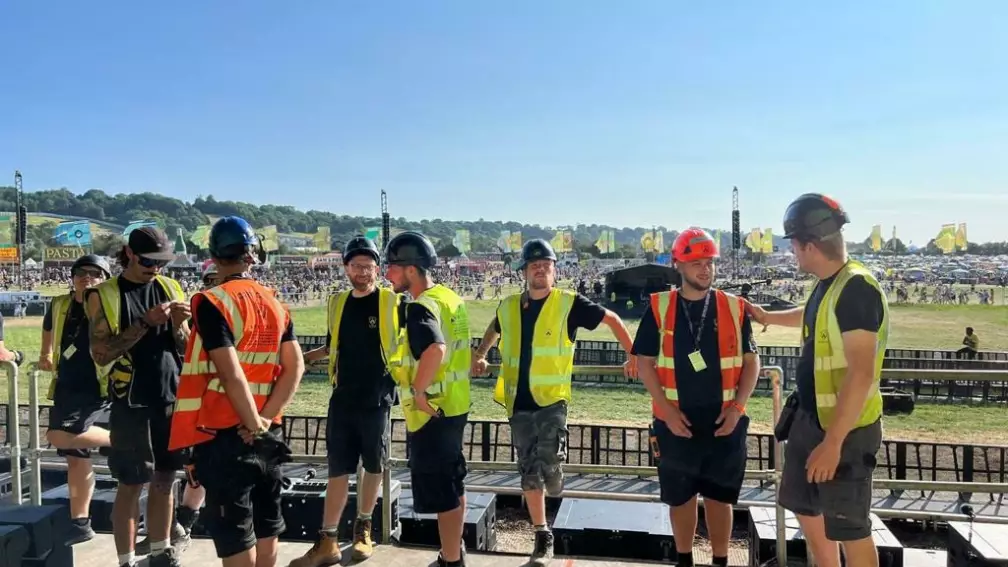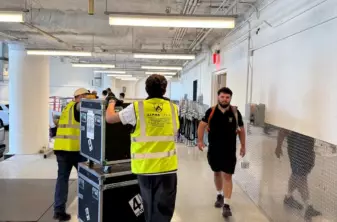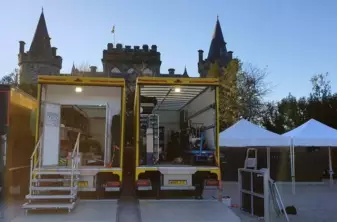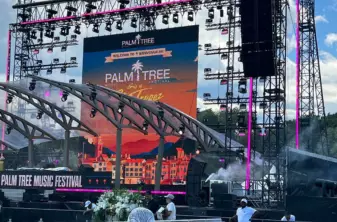Strategies for Protecting Open-Air Event Spaces & Festivals

Summer is approaching and that means festival season is nearly underway! The excitement and buzz of festivals make the experience unique, so as an event organiser, it is our job to ensure that the festival or event is secure and safe for all those attending. Not only for safety but to ensure the event is as enjoyable and memorable as possible.
Outdoor festivals present a unique set of challenges for event organisers; from vast fields in remote locations to urban centres hosting massive crowds. Ensuring the safety and security of attendees, performers, and staff is a highly complex task that requires careful planning and coordination.
At Alpha Crew, we specialise in large-scale events and have worked on various festivals and outdoor events. Keep reading to learn more about how to ensure that your open-air event is secure, safe and enjoyable.
Perimeter Security
Perimeter creation and management
One of the most important aspects of festival security is creating a clear and secure perimeter. This can involve physical barriers such as fencing, metal detectors, and strategically positioned security staff.
Tailor perimeters to the terrain
Different terrains require specific perimeter solutions. For instance, Boardmasters festival has a combination of terrain from grass, to rock, to coastal areas, meaning we had to ensure the perimeter was appropriate to the setting. Customising your perimeter strategy based on the event’s location is essential for effective security.
Perimeter patrols
Patrolling the boundaries of the festival grounds is essential for preventing unauthorised access. Trained security officers can be placed along the boundaries to identify and address potential threats. This proactive approach ensures that the event's perimeter stays safe.
Crowd Management
Collaboration with local authorities
Collaborating with local authorities by providing them with detailed information about the event, expected attendance, and potential risks ensures a coordinated approach from both parties. Mapping out a clear chain of command helps to avoid confusion and ensures smooth operation throughout the event.
Staff training
Security personnel should be trained in both safety protocols and customer service. Approachable and friendly security staff enhance the overall experience for festival-goers, ensuring they feel supported and safe without feeling intimidated. This can significantly improve the festival atmosphere and safety.
Entrance and exit management
Monitoring entrances and exits to control the flow of people ensures safety and reduces congestion at the festival grounds. Using a digital ticket scanning system, along with bag searches and security checks, ensures that only authorised individuals enter the event. Effective management of these points helps maintain security and order.
Emergency Medical Response
Onsite medical facilities
Having an on-site medical tent (or building) staffed by professionals can reduce response times in the case of emergencies. Implementing on-site immediate medical care reduces the need to transport attendees off-site for treatment, which can become problematic.
Minor injuries
Festivals often involve alcohol, which can lead to intoxication and minor injuries. Medical teams must be prepared to handle these cases. Training staff to recognise signs of severe intoxication and having procedures for quick medical intervention can prevent incidents from becoming more serious.
Working with emergency services
Setting up direct communication channels with local emergency services ensures a quick response to any serious incidents. Regular test runs and clear procedures help prepare staff and emergency responders for various scenarios. The UK government created this fire safety risk assessment for open-air events which can be useful.
Weather Contingency Planning
Weather forecasts
Continuous monitoring of weather conditions sounds simple but is crucial for outdoor events. Having a dedicated person or team to track weather forecasts and communicate updates ensures that event organisers can respond quickly to changing conditions.
Create evacuation plans
Creating evacuation plans for severe weather events, such as thunderstorms or high winds, is important for overall event safety. Clearly marked evacuation routes and trained staff to guide attendees can minimise panic and ensure a smooth, safe evacuation process.
Shelter options
In extreme cases setting up designated areas that can act as temporary shelters during adverse weather conditions can protect attendees from harm. These shelters should be easily accessible and capable of accommodating large numbers of people.
Securing outdoor festivals is a complex operation requiring diverse inputs to effectively address perimeter security, crowd management, emergency medical response, and weather contingency planning. By implementing these strategies, festival event organisers can create a safe and enjoyable environment for everyone. Coordinating with local agencies, training security staff and preparing for medical and weather emergencies can make the security plan more successful.
If you need support for your next open-air event please get in touch. Our team would be delighted to discuss how Alpha Crew can support you and take your open-air event to the next level.


